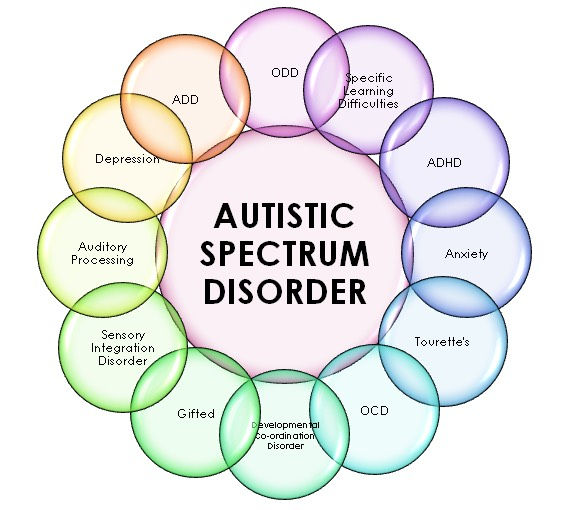A Holistic Path to Healing: How Ayurveda, Jyotisa, and Yoga Can Empower Adults on the Autism Spectrum
- Jay Varkey
- Jul 9, 2025
- 4 min read

Autism Spectrum Disorder (ASD) is often misunderstood and overlooked in traditional medicine. Too often, those on the autism spectrum are categorized by their symptoms and treated in ways that don’t fully recognize their individuality or true potential. This can leave many people feeling isolated and misrepresented. But what if there’s a way to approach autism that honors each person’s unique experience and offers a path to healing and self-discovery?
That’s where Ayurveda, Jyotisa, and Yoga come in—three ancient practices that can offer support and empowerment in ways that traditional Western medicine often misses. These systems take a deeper, more holistic approach to healing and well-being, offering insights, tools, and techniques to help adults on the autism spectrum feel truly understood and supported.
Ayurveda: Embracing Your Unique Constitution
In Ayurveda, every individual is seen as unique. Rather than focusing on symptoms, Ayurveda looks at the whole person—body, mind, and spirit. The concept of balance is at the heart of this ancient system, and for adults on the autism spectrum, balance is key. Ayurveda recognizes that people on the spectrum may experience challenges with things like sensory overload, anxiety, and emotional regulation, which can all stem from imbalances in the body and mind.
By understanding your unique constitution, Ayurveda offers personalized guidance on everything from diet to lifestyle choices. For example, if you're someone who experiences restlessness or struggles with focus, there are specific herbs and foods that can help calm your nervous system and ground your energy. Simple meals like Kitchari, made with mung beans and rice, are nourishing, grounding, and easy to digest, helping restore balance and ease digestive discomfort. Ayurveda also suggests routines and practices that bring stability and predictability, creating a sense of calm and comfort in a world that often feels overwhelming.
Jyotisa: A Deeper Look at Your Inner World
Jyotisa, or Vedic astrology, offers a unique and empowering way to understand yourself. Through the study of the stars and planets, Jyotisa helps uncover the deeper layers of who you are—the unique qualities, strengths, and challenges that make you, you. Instead of viewing autism as a set of symptoms to be managed, Jyotisa offers a cosmic map that can explain why you may experience the world differently.
For example, the position of Mercury in your birth chart may shed light on how you communicate and process information. This can help you understand why you may feel more comfortable with written communication rather than verbal exchanges. Jyotisa also highlights the planetary influences that shape your emotional landscape, offering guidance on how to work with these energies rather than against them. It’s a deeply personal and insightful way to see the world and your place in it.
Yoga: Finding Ground and Inner Peace
Yoga isn’t just about physical postures; it’s a holistic practice that brings together the mind, body, and spirit. For adults on the autism spectrum, yoga can be a powerful tool for finding calm and focus. The gentle, grounding movements of yoga help reduce stress, calm the nervous system, and promote body awareness. Practices like deep breathing, meditation, and mindfulness help individuals stay present in the moment, reducing overwhelm and improving emotional regulation.
Certain yoga poses, like Child’s Pose or Tree Pose, help anchor the body and mind, creating a sense of stability and ease. Breathwork techniques, like alternate nostril breathing, can help soothe anxiety and promote relaxation. Yoga also offers a safe space for self-expression and exploration, helping individuals connect more deeply with their bodies and emotions.
Filling the Gaps Left by Traditional Approaches
While traditional Western medicine tends to categorize autism in clinical terms, Ayurveda, Jyotisa, and Yoga take a much more personalized approach. These practices don’t label or diagnose—they offer insights, guidance, and support for navigating life in a way that feels right for you.
For adults on the autism spectrum, this means moving beyond the traditional "one-size-fits-all" treatments and embracing a holistic path that honors your individuality. Ayurveda can help restore balance, Jyotisa can illuminate your soul’s journey, and Yoga can provide the tools to live with more peace and clarity. Together, these ancient systems offer a complete and compassionate way to understand yourself and navigate the world.
A Path to Empowerment and Healing
If you’re an adult on the autism spectrum, or if you know someone who is, these ancient systems offer a path to healing that feels grounded, supportive, and uniquely yours. Whether you’re seeking better health, emotional balance, or simply a deeper understanding of yourself, Ayurveda, Jyotisa, and Yoga can provide the tools and guidance to help you thrive.
You don’t have to face the challenges of autism alone, and you certainly don’t have to accept the limitations that come with misrepresentation or misunderstanding. By embracing these holistic practices, you can empower yourself to live a life full of possibility, understanding, and inner peace.
If you’re ready to explore a personalized approach to healing and self-discovery, I’m here to help guide you every step of the way. Together, we can create a plan that supports your unique needs and helps you live a more balanced, vibrant life.




Comments